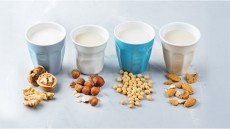Nuts sold in Australia safe from Salmonella and E.Coli

The survey was conducted in the wake of a number of outbreaks and recalls in Australia and overseas that were related to these products. It also highlighted the lack of recent data in Australia on nuts and nut products available for retail.
Between January and June 2011, a total of 915 samples were collected across Australia and analysed for Salmonella and E. coli by the New South Wales Food Authority (NSWFA) with the collaboration of other agencies.
High safety standards
The survey was aimed at gathering information on the prevalence of the two contaminants in imported and domestically produced RTE nuts and nut products.
The results of the survey were then assessed against Food Standards Australia New Zealand’s (FSANZ) guidelines for the microbiological examination of RTE foods. This process found that the microbiological quality of nuts and nut products in Australia is generally very good.
“When assessed against the FSANZ’s guidelines for the microbiological examination of ready to eat foods, the survey found that 99.9% of samples were classified as microbiologically acceptable,”the report said.
“Only one sample of unpackaged macadamia nuts was categorised as potentially dangerous due to the presence of Salmonella Aberdeen. A follow up sampling of another unpackaged macadamia sample from the same retailer was negative for Salmonella.”
Chequered past
There have been a number of large outbreaks associated with RTE nut and nut products in the past, both in Australia and overseas. For example, in 1996, Salmonella Mbandaka infected fifteen people in Australia through the consumption of peanut butter.
In 2001, there was an international outbreak of Salmonella Stanley and S. Newport, associated with consumption of a specific brand of imported peanuts.
The most notable outbreak was Salmonella in peanut butter in the USA that caused food-borne illness in over 600 people in 2006, and over 500 people the following year, including over 100 hospitalisations and contributing to eight deaths.
While clearly giving a thumbs up to the RTE nuts and nut products in the country, NSWFA warned however that “nuts sold unpackaged at retail have the potential to be inadvertently contaminated by consumers and the presence of Salmonella may not automatically be associated with the processing of the nut.”
















